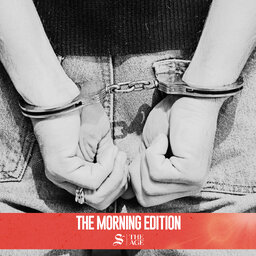Enemies within: shocking allegations of rape in the defence force
Many will remember a powerful 2013 video of the then Australian army chief David Morrison ripping into soldiers who denigrated women, saying there was no place for them in the military.
But today, after another set of allegations of rape in the ADF have been revealed, we wonder if anything has really changed.
Today, investigative reporter Nick McKenzie - who broke the story for our mastheads and 60 minutes.
 The Morning Edition
The Morning Edition



